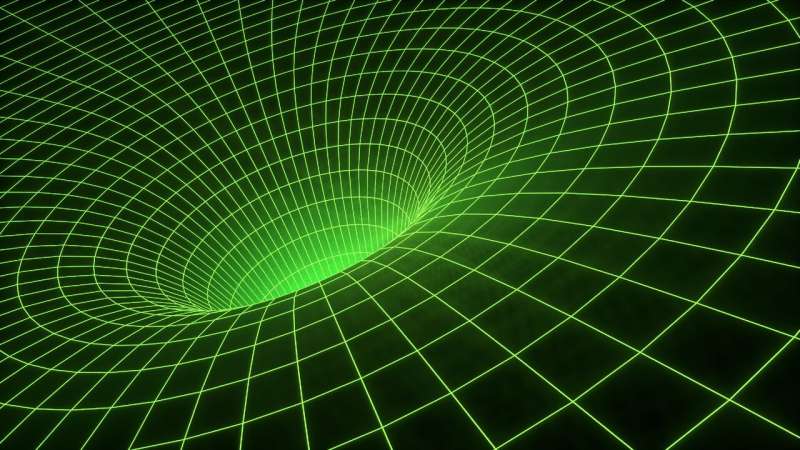Researcher suggests that gravity can exist without mass, mitigating the need for hypothetical dark matter
JUNE 7, 2024
by Russ Nelson, University of Alabama in Huntsville

Credit: CC0 Public Domain
Dark matter is a hypothetical form of matter that is implied by gravitational effects that can't be explained by general relativity unless more matter is present in the universe than can be seen. It remains virtually as mysterious as it was nearly a century ago when first suggested by Dutch astronomer Jan Oort in 1932 to explain the so-called "missing mass" necessary for things like galaxies to clump together.
Now Dr. Richard Lieu at The University of Alabama in Huntsville (UAH) has published a paper in the Monthly Notices of the Royal Astronomical Society that shows, for the first time, how gravity can exist without mass, providing an alternative theory that could potentially mitigate the need for dark matter.
"My own inspiration came from my pursuit for another solution to the gravitational field equations of general relativity—the simplified version of which, applicable to the conditions of galaxies and clusters of galaxies, is known as the Poisson equation—which gives a finite gravitation force in the absence of any detectable mass," says Lieu, a distinguished professor of physics and astronomy at UAH, a part of the University of Alabama System.
"This initiative is in turn driven by my frustration with the status quo, namely the notion of dark matter's existence despite the lack of any direct evidence for a whole century."
More:
https://phys.org/news/2024-06-gravity-mass-mitigating-hypothetical-dark.html
